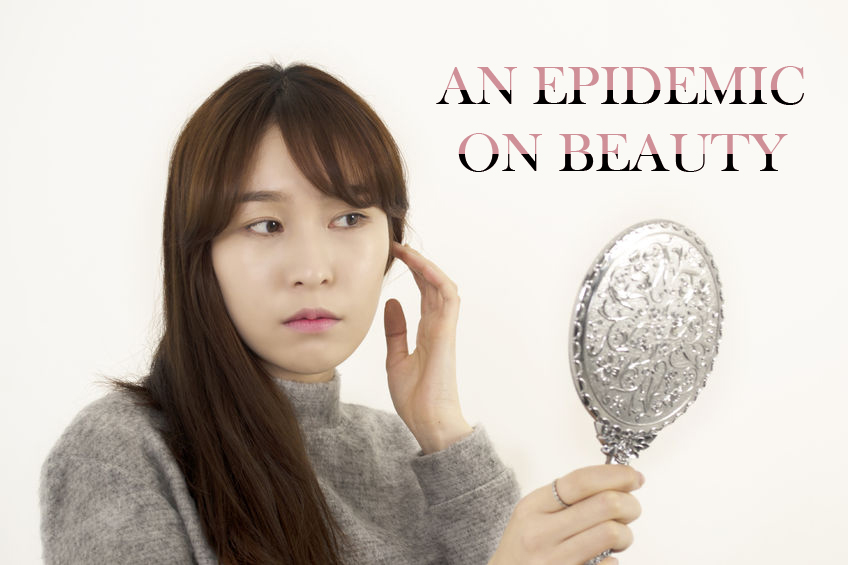South Korea’s Beauty Epidemic
April 6, 2017
A common stereotype about Asians is that they all look alike. Although this can usually be brushed off, joked about and ignored, this is becoming a reality in South Korea.
According to “Business Insider,” South Korea is regarded as the “plastic surgery capital of the world” because the country has conducted the most plastic surgeries on Earth — per capita, per year — since 2009. With over 980,000 recorded operations in 2014, this roughly places South Korea at 20 procedures per 1,000 people — seven more people than the United States, which is currently ranked sixth.
The International Society of Aesthetic Plastic Surgeons reported that “one in five South Korean women have had some form of surgery” including adolescents. BBC reports that the number is 50 percent higher for women in their twenties. And while it is a female-dominated industry, “The New Yorker” reported that men make up 15 percent of these consumers.
People living outside South Korea may view this as unhealthy, but for many Koreans, it is a normal practice. In fact, the “K-pop combo” of nose surgery plus double-eyelid surgery — by far the most popular procedures — is a common graduation gift for Korean high-school students. For example, “The Atlantic” interviewed Ye Jin-Kim, a 16-year-old at Gumi Girls High School, who shared that she had already planned on having eyelid surgery after graduation.
Bae Seonghee, another student, shared that several of her friends have already undergone plastic surgery. “In our school most students want to have a plastic surgery,” Seonghee told “The Atlantic.” “They plan to do it during their…winter vacation.” In fact, it is such a normal practice that there is no stigma attached. “Why would there be?” she asked. “It’s common to change one’s face in Korea.”
Mallory Thornberry, an American who teaches English at Gumi Girls High School, commented in 2009 on the normality of plastic-surgery procedures and existing beauty standards among South Korean students. “Students would come back from vacation and tell me that they had gotten eyelid surgery,” she told “The Atlantic.” “It was very strange, as my background predisposes me to tell them that they don’t need to change anything, but they are looking for congratulations — they want me to tell them that they look ‘pretty’ now.”
Thornberry, upon entering the school, mistook comments on her small face, large eyes and slim figure as insults, but realized that they were complimenting her highly desired “western” features.
“I thought they were making fun of me…I’ve been teased about having a small head on a big body before,” said Thornberry. “The idea of certain physical traits being coveted and considered beautiful hadn’t crossed my mind.”
Beauty and appearances, she discovered, were also heavily associated with weight.
“There were multiple mirrors in the school, full length ones in every hallway,” she reported. “Men and women here are always looking in mirrors, and they’re not shy about it.” She also noted that scales were available for any students to use throughout the hallways and corridors.
“If Koreans think you are overweight, they’re not shy of telling you to your face,” she said.
Most tend to attribute such extreme standards to representation in media. For example, popular Korean dramas such as “Oh My Venus!” and movies like “200 Pound Beauty” positively promote weight loss and plastic surgery, and associate both with success and beauty.
Korean “idols” (actors, entertainers and singers) often openly report their weight, and most are even considered underweight in regard to BMI standards. Chen Xiao, a Chinese K-Pop singer in the Korean girl group Cosmic Girls, stated on the variety show “Happy Together” that when she was in training, she was required to attend weekly weigh-ins. If she weighed over a certain amount, she was either severely scolded or had privileges such as free time and meal times taken away.
This is a common practice in the Korean entertainment industry. Another example is Jihyo Park, a member of the girl group TWICE, who was told during her training years on survival show “Sixteen” that she was “too chubby” at the time to debut.
Because of the competitiveness and requirement for specific looks in the entertainment industry, many idols are open about the plastic surgery they felt they needed to undergo. Hwang Kwanghee, a member of the boy group ZE:A, stated on the Korean reality show “Strong Heart” that “after getting my whole face fixed, I laid in [the hospital] bed recovering for about a year.” When asked what his motives were for undergoing procedures, he simply replied, “Because it would have been hard to make a living.”
Hwang’s mindset only reflects the competitive nature of South Korea. Most job applications require the attachment of a clear unedited photo because, to them, appearance is just another factor that ties into getting into a school, finding work, getting married or becoming a celebrity.
“Investment is the key word people use,” explained Sharon Hejiin Lee, an associate professor in the Department of Social and Cultural Analysis at New York University. “Forget about procedures, it’s about investment in their futures. Whether it’s about getting a better job or a better husband, people are thinking about this in economic terms.”
“The Atlantic” appropriately dubs this practice in South Korean culture as “knifestyle”:
“The attraction of cosmetic surgery lies in the notion of being able to transform yourself, to create an identity that you feel you should have been born with, regardless of nature and history,” writes Zara Stone.
While appearance is viewed in many cultures as shallow and superficial, for South Koreans, their attempts to look desirable are never in vain. For them, beauty is not just “skin deep.”


